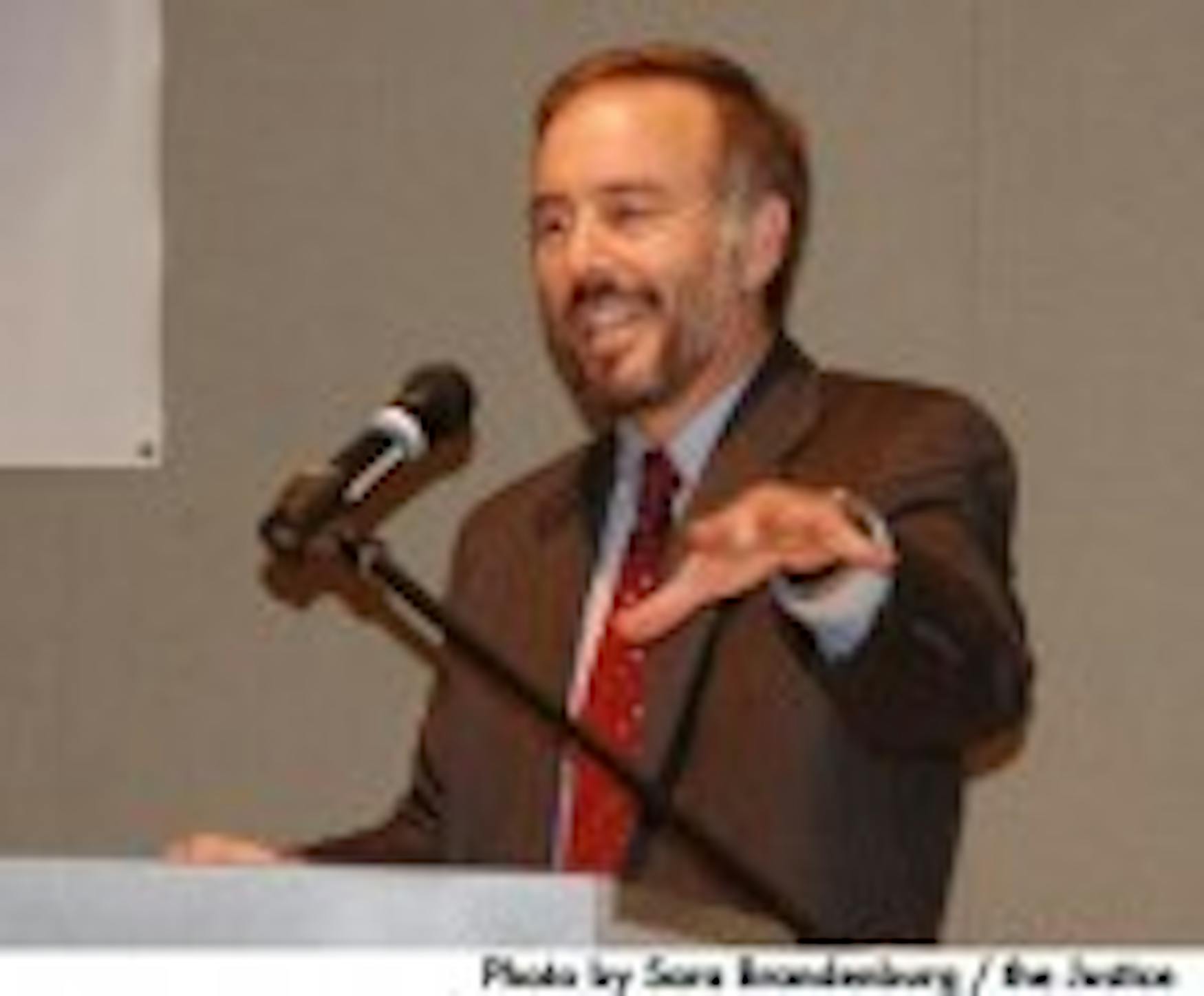International judges review staffers' book
Four foreign judges shared their experiences in international courts during the presentation of a new book by two staff members from Brandeis' International Center for Ethics, Justice, and Public Life last Thursday. The roundtable discussion celebrated this month's publication of The International Judge: An Introduction to the Men and Women Who Decide the World's Cases, by Daniel Terris, the center's director, and Director of Programs in International Justice and Society Leigh Swigart, as well as Cesare P.R. Romano of Loyola Law School. The book combines an overview of the international court system with an examination of the challenges international judges encounter, drawing largely on interview transcripts.
"We tried to create a book that combines a broad array of perspectives," Terris said.
The event was moderated by Anita Hill, a professor at the Heller School for Social Policy and Management. Hill became famous in 1991 when she testified against Clarence Thomas, then a Supreme Justice nominee, in a sexual harassment case.
"I found it so impressive to have such a distinguished panel here," Hill said. "They brought their vast experience from being in such critical placing for discussing such important international issues."
The panel included New York University professor Thomas Franck, a former ad hoc judge on the International Court of Justice; Richard Goldstone, a retired justice of the Constitutional Court of South Africa and former chief prosecutor for the International Criminal Tribunals in the former Yugoslavia and Rwanda; Chief Justice of the Massachusetts Appeals Court Phillip Rapoza, who was previously a judge on the Special Panel for Serious Crimes in East Timor; and Patricia Wald, who served as a judge on both the U.S. Court of Appeals in the District of Columbia and on the International Criminal Tribunal for the Former Yugoslavia.
The judges spoke about the history and functions of international judges and gave specific commentary on the book. Despite their differing experiences, the guests agreed that The International Judge is an important new book.
"It's interesting, important, and I'm sure the first of many books to come on this new species of animal, the international judge," Goldstone said.
Rapoza called the book a "first rate piece of work that pulls together a lot of strands and pieces of information in a sensible way."
The panel also gave constructive criticism in preparation for the book's next edition. Judge Wald took issue with the authors' apparent emphasis on the ability of international judges to overcome heterogeneity of politics, culture and even language. "I didn't see that much of a difference in international versus national courts," she said. "I saw the same kind of feisty individualistic judges in the international courts as in my home courts."
David Drayton '09, who attended the event said, "I found it interesting that the judges actually had some criticisms of the book, and they weren't just pandering."
Editor's note: Dan Terris is Associate Editor Ben?Terris' father.



Please note All comments are eligible for publication in The Justice.